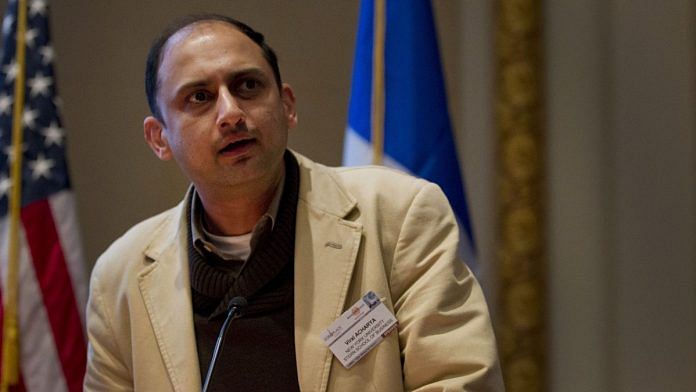Mumbai: India will soon start searching for a successor to central bank Deputy Governor Viral Acharya after the outspoken monetary policy maker asked to leave his post six months before his term ends.
The successful candidate would be the only deputy governor out of four at the Reserve Bank of India who will sit on the six-member Monetary Policy Committee. Acharya’s successor would also head the RBI’s monetary policy and research departments.
The post has traditionally gone to an economist outside the central bank. Prior to Acharya, it was held by Urjit Patel, who was later elevated to the post of governor. The last time the deputy governor position was advertised, 91 applications were received, including from social workers, former bureaucrats and market economists, according to a report at the time in the Indian Express.
A selection panel will compile a shortlist from the applications for Acharya’s job, and the government will make a final choice in consultation with the governor. Given the current make-up of the MPC, it’s likely to retain its dovish outlook after Acharya’s exit.
Also read: As its last dissenter, Viral Acharya persistently questioned Modi govt over RBI’s autonomy
These are some of the names doing the rounds in the local media as possible successors:
Sanjeev Sanyal, Principal economic adviser to the Finance Ministry
Business Standard newspaper, which first reported Acharya’s exit, said Sanyal may be in the race for deputy governor. Sanyal was Deutsche Bank AG’s global strategist in Singapore until 2015. In the past few months he’s made the case for lower real interest rates to support economic growth.
Michael Patra, Executive director at the RBI, Member of the MPC
A career central banker who had applied for the post in 2017, Patra may also be a contender, according to Business Standard. He currently reports to Acharya, and was considered a monetary policy hawk. However, since Governor Shaktikanta Das took office in December, Patra has voted for three successive rate cuts. Aside from monetary stimulus, he also says the economy needs fiscal support.
Others
Aspirants for the post back in 2017 included JP Morgan Chase & Co. Chief India Economist Sajjid Chinoy and Aditya Birla Group’s Chief Economist Ajit Ranade, according to the Indian Express. Both Chinoy and Ranade are part of a central bank panel set up to study the effects of an offshore rupee market and its impact on the currency and liquidity in the domestic market. -Bloomberg
Also read: Viral Acharya quits RBI as deputy governor: Report




Excellent academic credentials. Rhodes Scholar, Eisenhower Fellow. The qualification uppermost should be an ability to speak truth to power, render the best professional advice, not tailor one’s submissions to what senior people would wish to hear. Interest rates, for example. If an economist believes real interest rates are too high, make a compelling case to lower them. The other way this gets done is create scholarly justification for a decision after getting a call from Delhi. 2. One issue on which Dr Viral Acharya differed with his boss was on the treatment of borrowings made by state enterprises. He felt these should be counted in the fiscal deficit. Mr Das felt otherwise, because these entities had their “ revenue streams “ from which they could service their debt. Consider the case of the discoms, which too have their substantial revenue streams but whose debt lands up on the state governments’ plate once every few years.